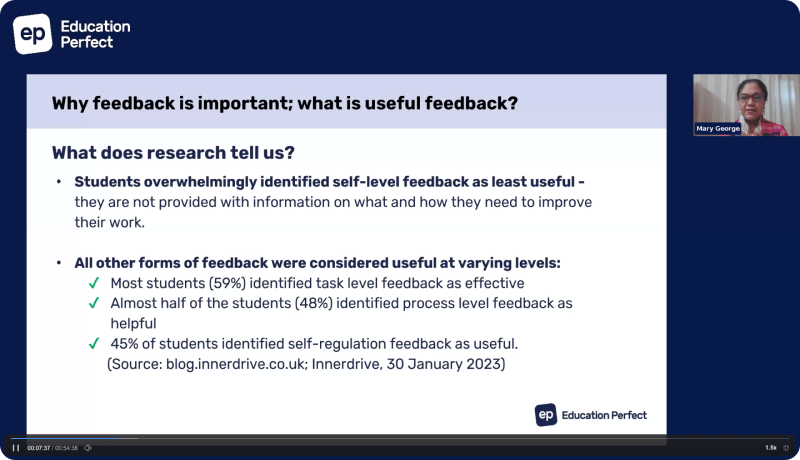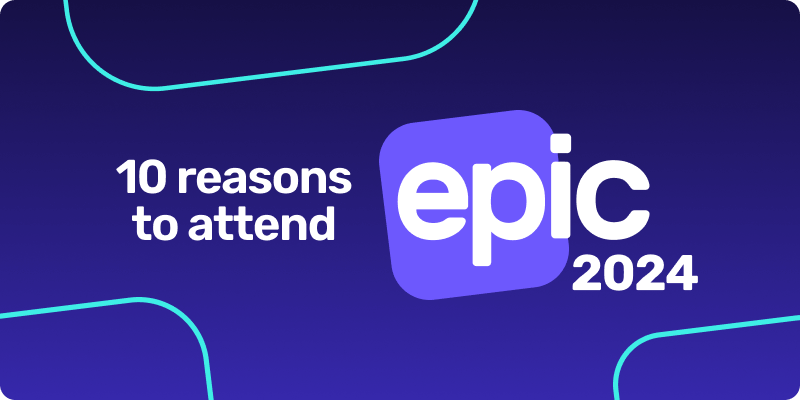Does that computer in front of your student make a difference?

How you can measure the effectiveness of what you do with a computer in a learning context.
When I started teaching in 2007, there was only one computer in my classroom. It was a dusty old PC with ram and processing power that would make my mobile phone laugh. However, this PC wouldn’t hear any laughing over the noise of its cooling fans. When I took my first (perhaps last) hiatus from teaching, ten years later, the average number of devices per student, in my classes, was greater than two. Through the narrative lens of my career, and, the unbelievably large change in access to technology over that timeframe, I would like to demonstrate how the use of technology in teaching and learning can be more objectively appraised.
In my interview for my first teaching job, the interviewer asked me, “Where do you see the place of technology in the classroom?” To answer this question I was able to call on some of my experience from my teaching placements during my training. By 2007 projectors were quite commonplace in most schools. That was a change since I finished school, when none were present. When out on teaching placement I saw a lot of teachers using projectors in much the same way as they had used an OHP projector with pre-printed slides. Before OHP’s teachers used to hide notes and diagrams on a blackboard or whiteboard and then dramatically reveal them at the crescendo of their chalk and talk. A powerpoint slide combined with some finger pointing and hand waving seemed to have fairly little learning advantage over the prepared whiteboard or OHP sheet.
One of the models used to describe the integration of technology into learning pedagogy is Puentedura’s SAMR model.
Using this model as a framework, the projector with PowerPoint slides sat squarely in the substitution category. There was no functional change to the teacher’s practice. However, the convenience of this technology meant something that once required more effort was now much easier. This led to that particular pedagogical process being able to be harnessed more readily. Where a Geography teacher might have once painstakingly sketched out a map of the British Isles over the course of 10 minutes and with a disturbing level of accuracy, they could now call on an image of any map, of any part of the world, and have it before their students within just a moment. My guess would be that Geography teachers talked about maps more frequently after the introduction of digital projectors than before.
While this may have enhanced learning for a large number of students, the floodgates had also opened and we were introduced to a new saying: “Death by PowerPoint”. Some teachers flogged this technology so hard that students were bombarded with only one mode of learning. This in turn, eliminated much of the variety and novelty previously present in classes and had a negative outcome on engagement and probably learning. This also highlights the need for interdisciplinary collaboration between teachers to ensure no one mode of learning is being thrashed to the extent that it disengages students.
While studying to become a teacher I was introduced to a program called Geometer’s SketchPad (yes that website is the same as when I first used it). It enabled you to sketch Euclidean geometric constructions on a computer in the same way you could using a straightedge and compass. It had a few handy additions, like, it could measure an angle, length or area of a construction and would update those measurements as you changed the construction. This is something that is impossible with a pen and paper. When combined with a projector it allowed me to demonstrate geometric concepts to students, where the change in those measurements illustrated the rule. While this task on the computer was a direct substitute for something I could have done manually on paper, it functionally improved the illustration of the concept. From that point of view, in relation to SAMR it represented Augmentation. I had replicated a task I could already do without digital technology, but by migrating it had functionally improved it.
Some years later at a different school, due to timetable and staffing constraints, I found myself teaching a senior Mathematics course in half of the time usually allotted. The only comforting factor was that my senior students had plenty of study periods. Very comforting. I knew I could essentially lecture the content in that time. But to teach it in a way that is engaging and treats teenagers as pre-adult, that was going to be difficult, and might even be impossible. This coincided with two disruptive technologies; fibre broadband internet and touch screen tablets. It dawned on me that I could pre-record my traditional ‘chalk and talk’ teaching episodes and host them on the web. If I then set up a routine for my students where they could watch those outside of class, it would free me up during class time to assist students individually, run group tasks and any other activities in class that I usually would. Because of the time constraints, it didn’t transform much, but it enabled teaching in this unusual context to proceed relatively smoothly. This represents modification in the SAMR model. The technology enabled a structural change in how the curriculum was delivered to students, without any noticeable change in their learning.
The next year I found myself in a fully resourced school. There was a 1:1 computer program, many teachers had stylus enabled devices that could connect wirelessly to projectors and the network infrastructure was enterprise grade. At the time I didn’t know what Flipped Learning was. But I now know that is what I had been doing at my previous school. My taste of it was still fresh and I wanted to see what it would look like in an already excellently performing educational environment. I began to post my teaching episodes on YouTube, then build a unit structure on OneNote.
Each link would direct students to a short instructional video authored by me. Students would tick the to-do tag to show that they had watched the video and had then completed the practice problems related to that topic. In turn, I would check on how they were doing and give them feedback so that they knew I was engaged in the process.
I remember in my early days of teaching, an observing teacher noted how long I talked to the class as a group during a period. It was in the order of 20 minutes. I was surprised because I considered myself relatively concise and keen to keep the pace of the class moving. When I flipped the classroom, one of the most noticeable differences was the extra 20 minutes I had each lesson. Overnight, I went from never feeling I was adequately addressing the individual needs of my students to having an uncomfortably large void of time in my lesson where my students were busy and I was not.
The question then became what do I do with this extra time. There are lots of answers to that question. I’ll cover a couple. I spent more one on one time with individual students. I made a habit of catching up with each student at least once every two lessons. I would give them my full attention for a couple of minutes and really try to get a good picture of where they were at and help them. This solidified my relationship with my students. This in turn made the videos more engaging for them, because they were listening to my voice, not something randomly plucked from the internet. It meant they could engage with the videos as an extension of their existing relationship with me as a teacher. I also started to do more group work. I would offer a focus on a particular concept or skill and work through an activity with 4–6 students. It’s not like I didn’t do group work before. It just became much easier when there was more time available to do it and administer it properly.
Flipping the classroom changed my practice completely and changed the way learning took place for my students. It allowed for a more multifaceted approach and exposed students to a broader range of learning activities. It made more efficient use of my time. The teacher is the single biggest influence on educational outcomes in the class. Anything that frees them up impacts outcomes for students in a positive manner, so long as that extra time is capitalised by the teacher. So flipping the classroom, along with the resultant extra practises that otherwise would not take place, is my example of technology redefining teaching and learning.
So that is the story of my journey with integrating technology into the classroom. If you have not come across the SAMR model before, I hope I have introduced you to the broad ideas around it. If you have come across SAMR, I would love to hear your thoughts about whether or not you agree with my classifications. For everyone reading this, I would encourage you to not necessarily see SAMR as a hierarchy of proficiency in technology use by teachers. I think it can be argued that, in some instances, Substitution is the optimal outcome and, equally, Redefinition will not always be the best outcome for our students. Most of all, I would love to know what you have done in your practise that can be mapped onto SAMR. Please share your experiences from S through to A-M-R.



